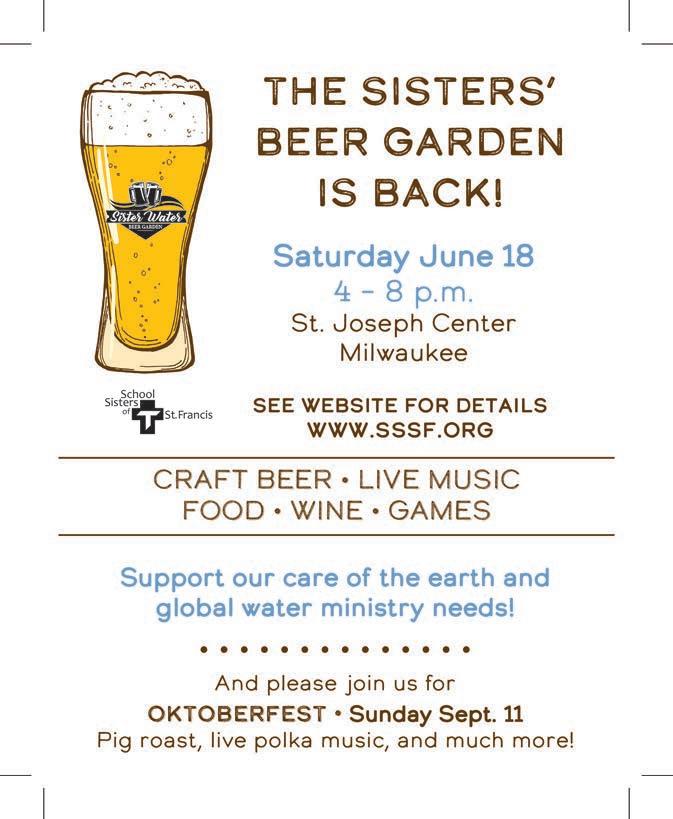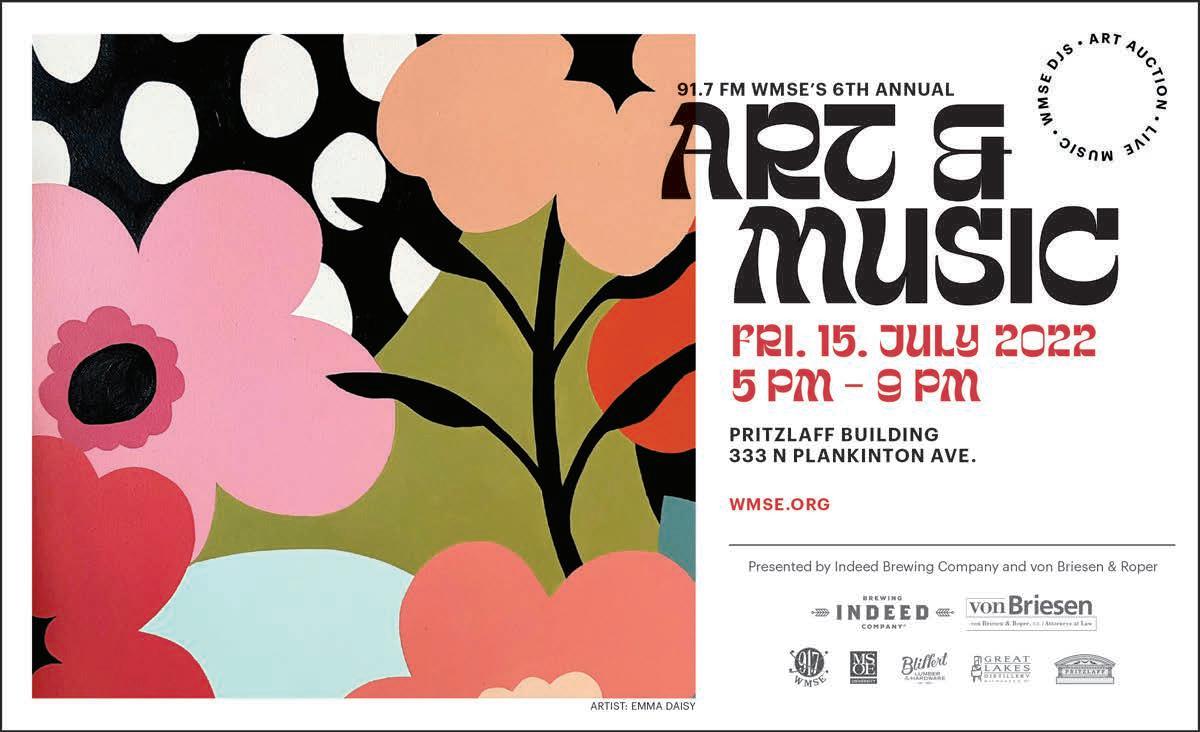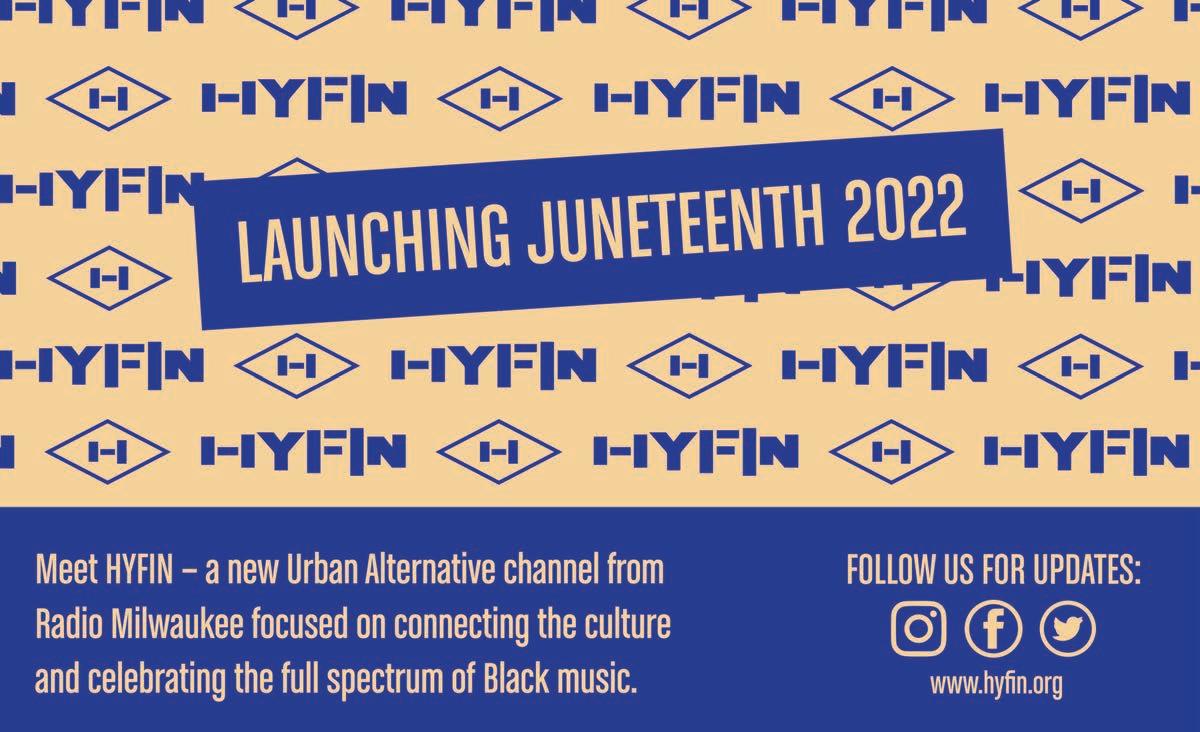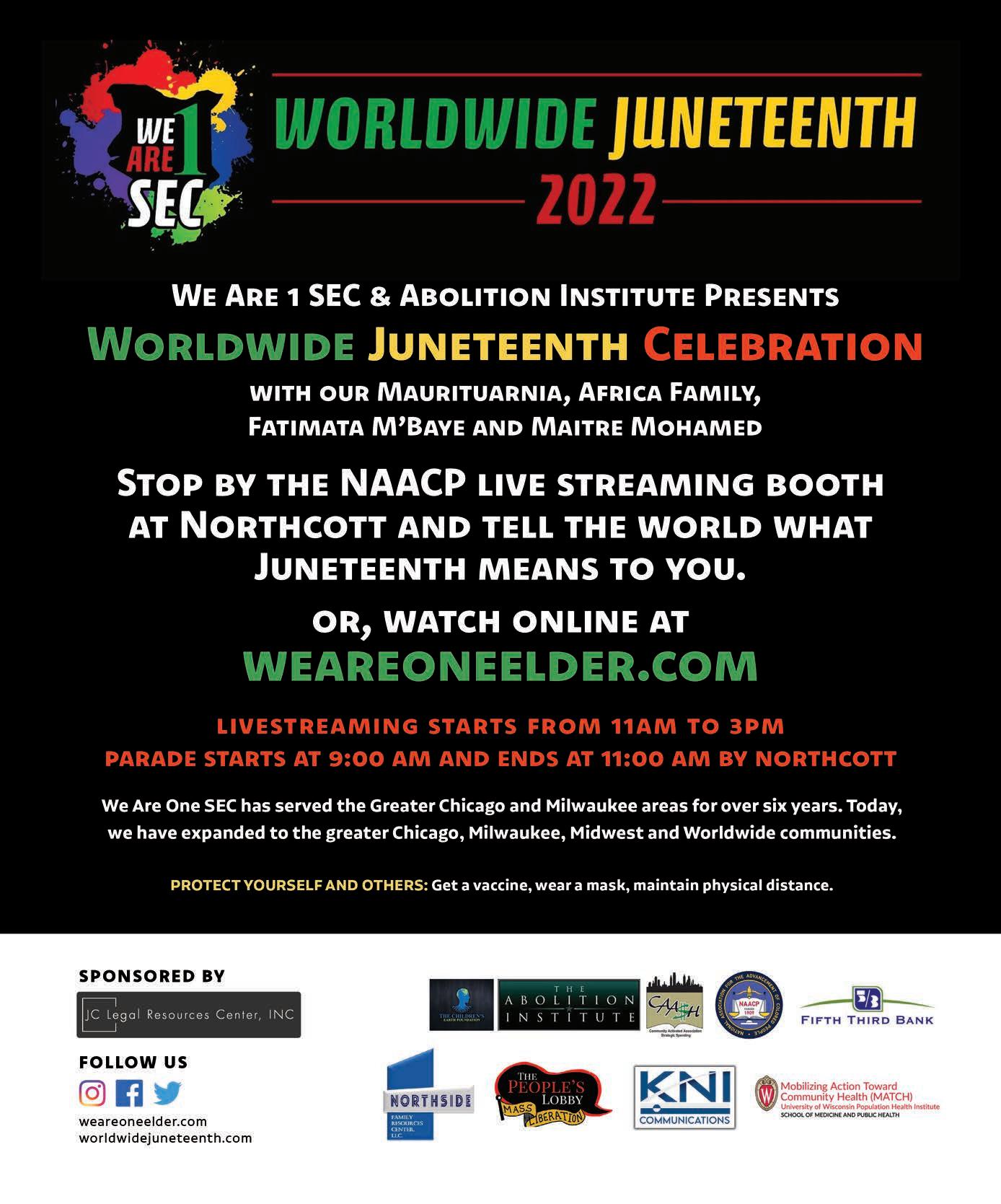
7 minute read
“Every young person should have a mentor in their life,” says MENTOR Greater Milwaukee’s LaNelle Ramey — MKE SPEAKS:
Photo by Tom Jenz. Illustrations by Michael Burmesch.
“Every young person should “Every young person should have a mentor in their life,” have a mentor in their life,” says MENTOR Greater says MENTOR Greater Milwaukee’s LaNelle Ramey Milwaukee’s LaNelle Ramey



Ialways thought of a mentor as an adult who shows an interest in a young person, takes them to sports and community events, maybe the movies, out to lunch.
According to LaNelle Ramey, Executive Director of MENTOR Greater Milwaukee, most adults can be mentors and in almost any setting. “We believe that every young person should have a mentor in their life,” he told me.
One concept in mentoring holds the key: Listening with thoughtfulness and empathy. At 49 and the father of eight children, Ramey has been a dedicated public and private servant for his adult life. We met at the cafe in the No Studios Arts building near the Fiserv Forum. Ramey communicates through a warm conversational style, like listening to a song that makes you feel good.
Tell me about your background, how you were raised, your parents, your neighborhood and schooling.
I grew up in Milwaukee’s central city, 32nd & North,and later 49th & Hampton. My parents both worked at General Electric, but my mom later worked as a teacher for the public schools. I have four sisters, two older and two younger. If it wasn’t for my sisters, I don’t know how I would have ended up. I went to 38th Street Elementary School on Congress, and John Burroughs Middle School, and then to the best high school in the country, Riverside University High School on Locust.
I liked the diverse student population. My high school days were some of my best days, the birthplace of my social work and activism. I was very involved in the Stop the Violence campaign, went on protests, attended press conferences. After
high school in 1990, I went to Morehouse College in Atlanta, but when I found out I was gonna be a father at 19, I transferred to Marquette and eventually graduated in pre-law and criminology. Took me six and a half years because I was also working full time and being a parent. But I continued right on through to get my Masters in Public Administration.
How did you get involved in social work?
I became a case manager at New Concept Self Development, a small nonprofit run by June Perry and Jerry McFadden. Under the mentorship of June Perry, I began to have aspirations of being an executive director. She taught me how to connect as an executive. I worked there for six years as a case manager, and when I left, I was a director. Then, I spent 14 years at the Boys & Girls Clubs. I started as an executive director over one club, then moved up as an area director for seven clubs. Milwaukee Boys & Girls Clubs are one of the biggest in the country. 33 locations. Some are located in MPS buildings.
What kind of activities do the kids do at the Boys & Girls clubs?
There are several core areas: education, character and leadership, sports fitness and recreation, art including acting, and healthy lifestyles. Kids find an area they love, and they participate in after school settings. In 2017, Superintendent of Schools Dr Driver, Mayor Barrett and Peter Feigin of the Milwaukee Bucks started MENTOR Greater Milwaukee. Dr Driver brought me in, and I helped do the setup of the organization. I became the Executive Director in October 2019. MENTOR Greater Milwaukee is an affiliate of the Mentor National organization. There are 26 affiliates around the country.
What exactly does the MENTOR Greater Milwaukee organization do?
We are kind of the middle-man for mentoring programs throughout the greater Milwaukee area. We provide recruitment and training and also connections to organizations who are advocates. Mentoring is versatile, can be one on one, in groups, in arts programs, sports, business, the trades. We offer the basic principles. If you want to be a mentor, we show you the different programs that align with your interests. For instance, if you’re a gardener, we can align you with programs that are working with young gardeners. That way, you are doing something you love while working with kids.
Quoting from your website: “Mentoring, at its core, guarantees young people that there is someone who cares about them, assures them they are not alone in dealing with day-to-day challenges, and makes them feel like they matter.” But what is a mentor? And how does an adult become a mentor?
We believe that every young person should have a mentor in their life. Even if a young person has two active parents, they still should have another voice to confirm the parents’ values. Kids need an adult who can identify and listen to them. A mentor is a mix of a teacher and a friend. In our training, we tell prospective mentors that there are three critical elements to being


a good mentor: One, be open and vulnerable, two, be willing to share your experiences and what you learned, and three, be committed to cultural competency.
It’s important to comprehend a child’s culture, family, neighborhood, socio economics, schooling. In all these cases, you are trying to create a relationship with the mentee. We try to get adults in influential positions to have a mentoring mindset, no matter what the venue, school, business, church, government. Let’s say you’re a manager at McDonald’s. Instead of just ordering around the young employees, you take an interest in their lives. Listen to their problems, their issues. ‘Hey, how are you doing, what was your day like?’
To summarize, if adults have relationships with youth whether it’s in a business, school or community setting, what you try to do is teach them mentoring skills. Right?
Exactly. If I show you how to be a mentor on the job, you will create a relationship with the young person. In many cases, you are working with that kid for many hours. You can create trust. For example, if mentoring happens at work, in school, and in the community, that kid might end up with three concerned and interested adults. We do seminars on this subject. We’ve done training for Goodwill, Northwestern Mutual, the Brewers, the Bucks. And for Employ Milwaukee, the Workforce Development Board in Milwaukee County, we trained all their organizations. One hundred plus supervisors, 800 young people.
Here is a quote from you: “A mentor understands the impact of implicit and explicit bias and removes biases from situations and circumstances while working with their mentee.” What do you mean by this?
This goes back to cultural competency. We tell people that everyone has biases. The goal is the elimination of bias when working with someone different than you. Years ago, we were taking a bus load of central city kids to the beach. We pulled up to Lake Michigan, and one boy asked, “Is this the ocean?” For some young people, their reach is very narrow. A mentor has to be mindful of where a young person was raised, the culture, the neighborhood, the family, even the school. We have to do a better job of showcasing Black men as role models. Mentoring helps to do that. Mentoring provides Black male role models the opportunity to step into these spaces. We did that through our First Thursday Mentoring Program in five public schools. We bring in 15 to 20 Black men as positive role models in these schools to create positive platforms.
Remember that there can also be negative mentors spreading bad influence on the streets. If I am going to be a mentor, my objectives are first, not to assume that if someone looks like me, they have the same experience I do, and second, if they do look different than me, I need to understand their story. The goal is to connect.
If you’d like to be a mentor, you can find out more at MilwaukeeMentor.com
Tom Jenz writes Central City Stories for shepherdexpress.com.












